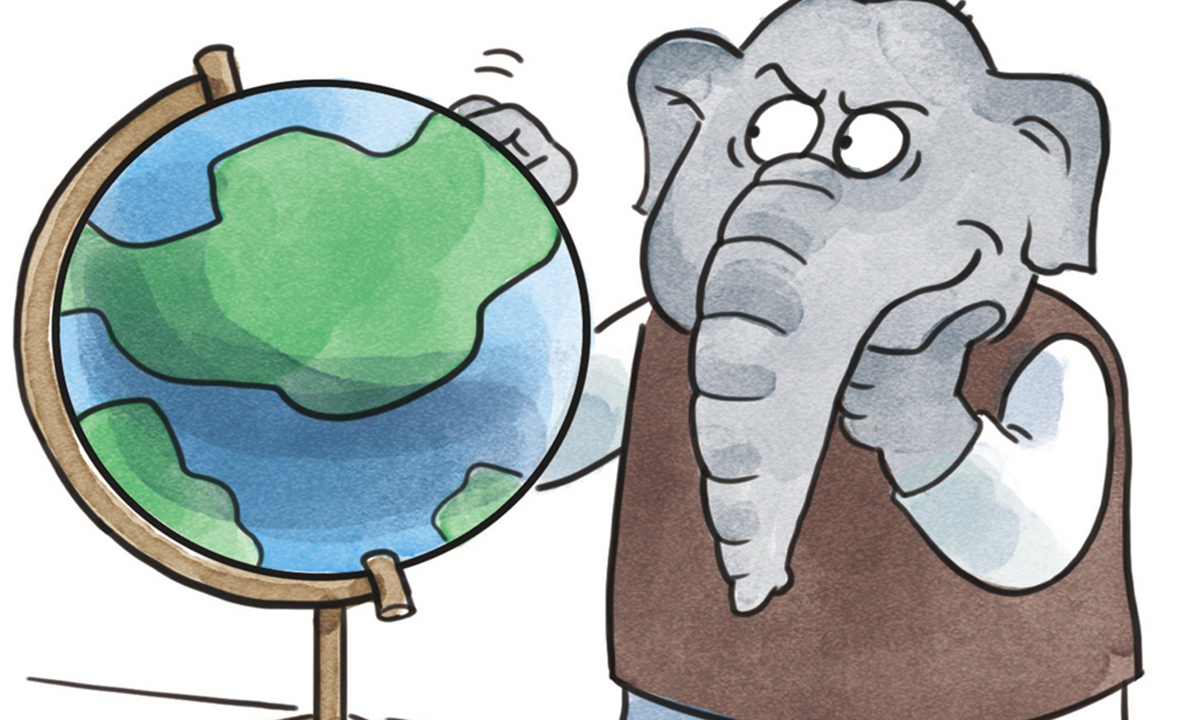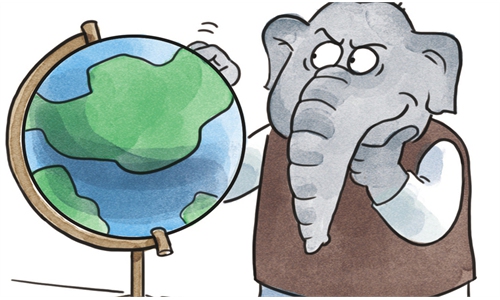India’s reported opposition to China-led investment protocol at WTO lays bare its Sinophobia, narrow mind: observers

India Illustration: Liu Rui/GT
India's reported opposition to a China-led investment protocol at the WTO has laid bare its Sinophobia and narrow mind, observers said, as the move is a fresh attempt by New Delhi to curb the growing global influence of China, the world's largest developing country, which India deems as a competitor "for the crown as the spokesperson for the developing world."
Also, a block on investment facilitation could make it easier for the South Asian country to arbitrarily impose barriers on foreign investment, especially on Chinese companies, which then would be a serious disruption to the global investment environment, observers warned.
They urged India to put aside its political prejudice and stand firm with the global mainstream of trade and investment liberalization, which would be beneficial to its staggering economy as well as the rest of the world.
China's Commerce Minister Wang Wentao will lead a Chinese delegation to attend the WTO 13th ministerial (MC13) meeting in Abu Dhabi from February 26 to 29, He Yadong, a spokesperson of China's Ministry of Commerce (MOFCOM), said at a press briefing on Thursday.
"China is a firm advocate of inclusive economic globalization that brings universal benefits, as well as multilateralism. China will firmly safeguard the multilateral trade system, and comprehensively and deeply participate in WTO reform to support the WTO to better play its role," He said.
The China-led Investment Facilitation for Development (IFD) proposal will reportedly be discussed at the upcoming MC13 meeting. India will oppose the proposal at the WTO, the Business Standard reported on Wednesday, quoting a senior Indian government official. The MC is reportedly the highest decision-making body of the WTO.
The report cited two reasons for India's objection, namely the subject of investment falling outside the mandate of the WTO, as well as the country's fundamental opposition to signing plurilateral pacts on multilateral platforms.
Tu Xinquan, dean of the China Institute for WTO Studies at the University of International Business and Economics in Beijing, told the Global Times that one of the genuine reasons behind India's move could be to counter China's expanding global influence.
Observers also took note of India's long-existing "Sinophobia" sentiment.
"India has always boasted about its global status as the spokesperson for developing countries, and it does not want to see any deals with China 'tags' succeed on the global stage," Tu explained.
The IFD is the first important proposal that China led, and it has successfully concluded negotiations at the WTO, according to a report by China Central Television. It is also the first agreement that sets global standards for WTO members to create a favorable environment for attracting investment.
In July 2023, the text negotiation for the IFD concluded. In December, about 120 WTO members including China announced the final text had completed legal reviews, and they urged all members to perform the necessary procedures as soon as possible to incorporate the agreement in the legal framework of the WTO.
Huo Jianguo, a vice chairman of the China Society for World Trade Organization Studies in Beijing, told the Global Times that the blockade could also be motivated by the fear that its administrative power to restrict foreign investment would be put under constraints once India signed the protocol. He highlighted the Indian government's relentless targeting of Chinese tech companies such as Xiaomi and Vivo in recent years.
Amid a slowdown in global investment, observers said that the IFD carries great significance as it is conducive to improving the predictability, transparency and stability of global investment supervision policies, boosting global investors' confidence and shoring up the growth of global investment.
"It is hoped that India could abandon its selfishness and hostility against China, to join the side that safeguards multilateralism and trade and investment globalization," Huo said.
The landmark new agreement, if put into practice, is set to deliver as much as $1.1 trillion in annual global welfare gains, or, in GDP terms, an increase of up to 1.41 percent in global GDP, according to a report by the World Economic Forum in January.


